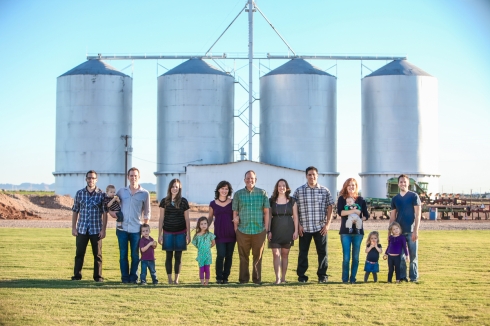
So, far this year, we have written about millennials, racism, urban ministry, and heaven. My next test is to start a conversation on doing ministry in a rural context. I have spent most of my ministry in big metropolises, but have not lived in a community of under 4,000. You know you live in a small town when the closest grocery store is 20 miles away, there is no Walmart in your city, and there are more cows than cars. Doing ministry in this context is very different than the concrete jungle I left ten years ago. There is just not the population density; I had to learn to adapt to living around. Over the course of the next few weeks, I pray that we can begin a discussion on useful models for rural and small-town ministries. As we enter this discussion, some essential and unique factors determine how fruitful your ministry will be.
Study the Church System
Rural churches frequently have a broad sense of community and are generally led by several principal families. You can upset this delicate church system easily. Take time to master the unwritten policies that guide the system. Usually, a small group of individuals oversees the ministry direction. They are the permission givers. They will either permit or limit what can and cannot be done. While every parish has a written set of rules, these permission-givers are the real decision makers.
The pastor seeking to make change needs to plan to sit down with the decision-makers and get their buy-in before launching into any new ideas. You cannot make any change and survive it until you carefully define the rules, roles, rituals, and goals, which make up the system.
Skipping this critical step could result in the only change taking place is you.
Take the Time to Learn the Unique Story of the Community
As you are learning how your church system works you must also learn the community you have been called to serve. Every town has its own stories. It’s unique heritage. You need to take the time to become a cultural detective. Learn how the town’s past, present, and future have shaped this town’s character. It is in this discovery phase that you may learn to love this community as much as its life-long members do. These stories are their identity, they have formed their self-esteem. Don’t minimize those stories. Honor their past, help them discover the future direction God may be leading them into. Steady continuity is particularly important for rural churches. Change is expected, even anticipated in the urban areas. But people live in rural areas for its slow, steady, dependable pace of change.
John Mark said, “The most important connection an incoming pastor can make is to sit with storytellers and understand the history and identity of the congregation they are called to. A congregation will only journey somewhere new when it is confident that its leaders know its story and stand in line with its history. Sometimes the gentle embracing of these stories may bring healing to a painful past.”
This true account proves that very point.
Carl Geary died a month ago from a heart attack as he campaigned in a small country town. Despite his sudden death he still polled over three times as many votes as his rival in the election in Tracy City, Tennessee.
His widow, Susan Geary, was not surprised by the election results. “The day he passed away, people were calling with condolences and saying, ‘We’re still voting for him,’” she said.
Geary was known for telling the truth and served on the city council. He received 285 votes to his rival’s 85.
I will end this post with these simple words. Ministry in rural America is about relationships and patience.

We too are in a rural setting and the struggles that go with that
LikeLiked by 1 person
I enjoy the lower pace. Luckily I live near Chicago if I miss the big city life.
LikeLiked by 1 person
To do major shopping we need to travel about 2.5 hours
LikeLiked by 1 person
Not that is rural
LikeLiked by 1 person
We have a small city close but not for major things so we take a day now and again
LikeLiked by 1 person
As a transplanted city kid who now lives in a small town, let me say that this was spot on. Take care.
LikeLiked by 1 person
Thank you
LikeLiked by 1 person
Pastor, This is very true. Rural life is about relationship, history, and roots. We had a county judge from East Texas speak at the chamber banquet this past year. He was in his thirties and the first African American speaker in Bowie, Texas. He was also the only African American in the room. His message was spot on; take the time to “sit a spell”. Learn about your neighbors, learn their needs, strengths, and their history. He stressed this the entire presentation. If we know each other its very tough to hate. As county Judge he met everyone and learned not only what they needed but what they had to offer. The same is true in a rural congregation. You will be amazed at what people in a rural church can offer.
Arn
Sent from Mail for Windows 10
________________________________
LikeLiked by 1 person
Thank you for reaffirming this post. Relationships is the key factor in all communities. Thanks for reading.
LikeLike